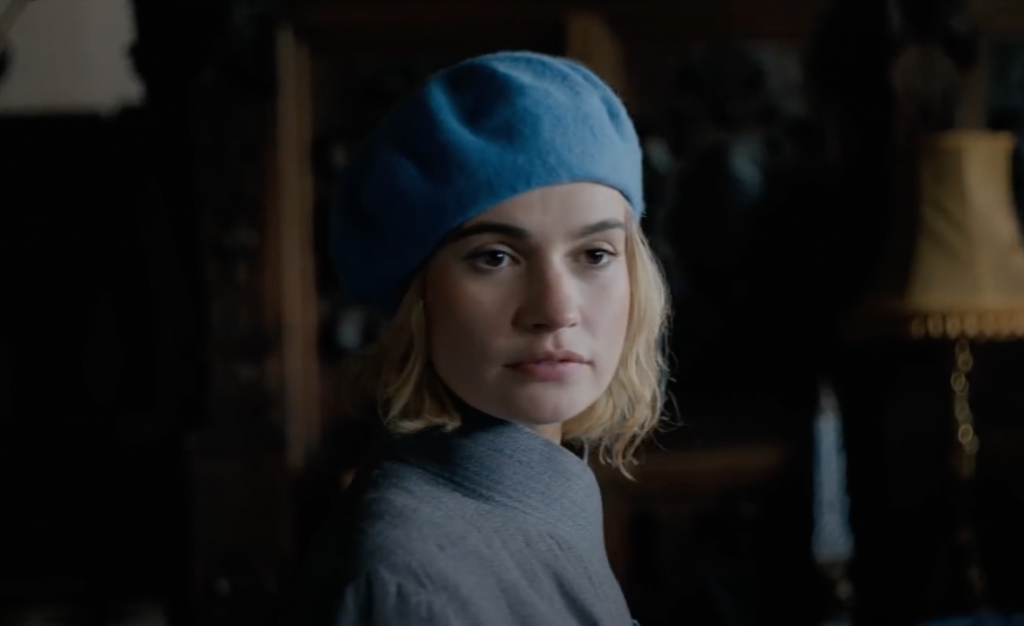
One of Netflix’s newest films, “Rebecca,” is an adaptation of Daphne du Maurier’s eponymous novel and follows in the footsteps of the 1940 critically acclaimed adaptation of “Rebecca,” directed by Alfred Hitchcock.
A romantic thriller, “Rebecca” follows a young newlywed as she moves into her husband’s estate, only to find herself in the shadow of his first wife, Rebecca, whose legacy still remains. The new Mrs. de Winter tries to unravel the mystery of her husband Maxim de Winter’s secrets – especially those shrouding the story being Rebecca’s death.
“Rebecca” had big shoes to fill, as Hitchcock’s film was nominated for nine Academy Awards, winning both Best Cinematography and Best Picture. Directed by Ben Wheatly, the new adaptation features the faces of Lily James – known for her role as Cinderella – and Armie Hammer – Oliver from “Call Me by Your Name” – as the de Winters. However, even with the appearances from James and Hammer, “Rebecca” seems to fall flat compared to the previous Hitchcock adaptation.
The film is a beautiful one. With much of the film set in Maxim’s estate, Manderly, each frame is one of visual perfection, the well developed aesthetic never wavering. James makes a beautiful Mrs. de Winter with everything from her clothes to her makeup carefully forming the perfect image of a young bride. The estate itself is one of grand proportions, each shot providing a visual feast to the watcher, especially those with views of the coastline.
Besides the aesthetic, though, there is not much I would boast for on behalf of this film. The acting, especially that done by James and Hammer, did its best to keep the movie going forward. The characters of the film, especially the Gatsby-esque Maxim, feel as if they are intended to be more complex than they come across. The storyline is supposed to be an intricate one but the face-value characters cause it to lose some complexity.
The film ended up feeling disjointed, with many of the important moments falling somewhat flat. There were also motifs in the movie that made a single appearance, their significance lost in the lack of resolve. By the conclusion of the film, I felt let down, none of the big plot points delivering the punches they were set up to.
The story of “Rebecca” has the potential to be one of great intrigue, but this adaptation struggled to deliver on that front. By the end of the film I wasn’t sure if I just wasn’t understanding the significant twists or if I had missed something. Come to find out, the film was simply unable to deliver on its possibility to be a fantastic romantic, psychological thriller.
While I enjoyed the visuals of the film, it would be hard for me to genuinely recommend this film without tacking on a critique. It was a valiant attempt at a fantastic film, but its essence was lost under the plot falling short and the simplified characters. If you watch films for the visual experience, “Rebecca” is a great Friday night choice. But if you want your thrillers to live up to their genre, this isn’t the film to choose.
